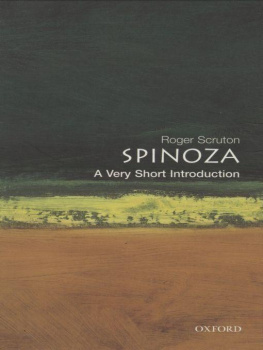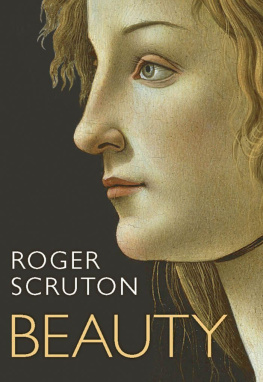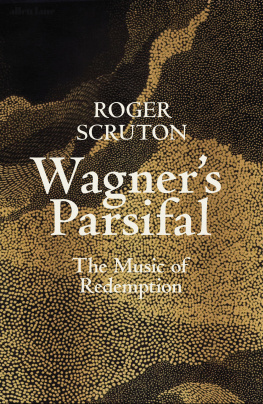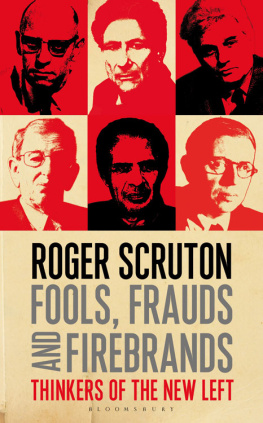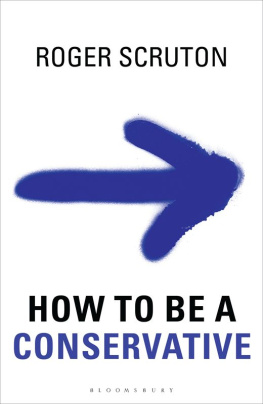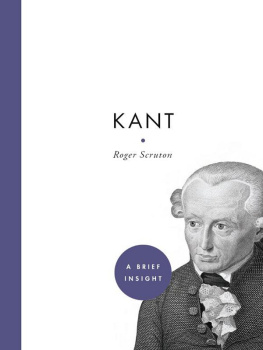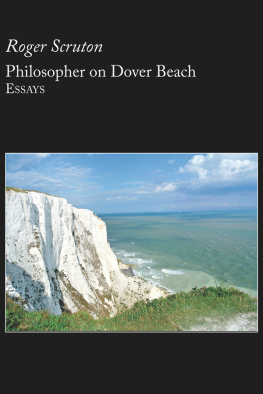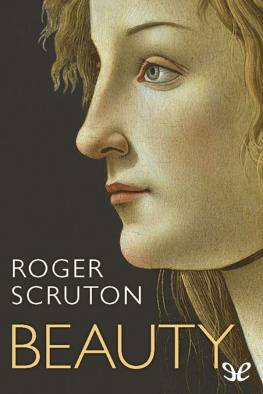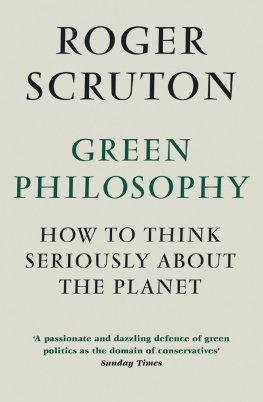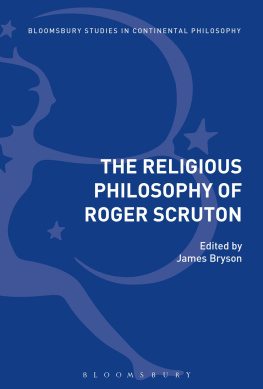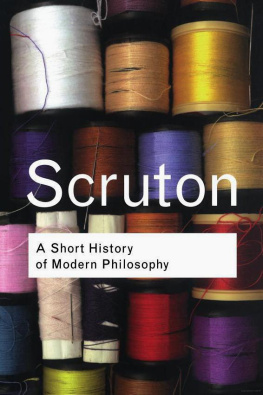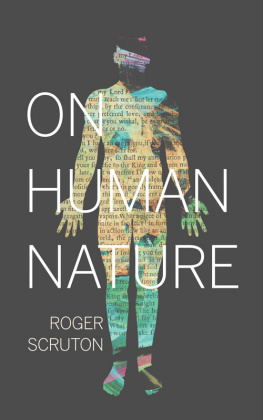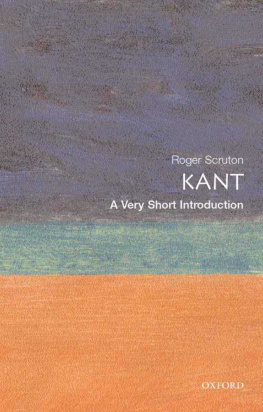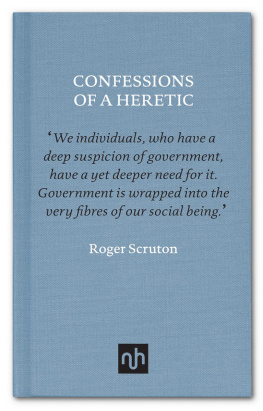Modern Philosophy
A Survey
Roger Scruton

The main text is without footnotes or other scholarly apparatus. I have therefore provided a Study Guide, which covers the material chapter by chapter, sometimes at length, sometimes cursorily, depending on the subject. In the Study Guide the reader will find the following:
(a) precise references to the works discussed or mentioned in the text;
(b) suggested preliminary reading;
(c) elucidation of specific difficulties;
(d) expansion of the topic, where appropriate, in order to show how it is now conceived;
(e) bibliography;
(f) occasional topics for discussion.
The Study Guide is far from comprehensive; but I hope that it will enable the reader, whether student or layman, to use the main text to the best advantage.
This book originated in a series of lectures, delivered first at Birkbeck College, London, and subsequently at Boston University, Massachusetts. I have expanded the material where necessary, and added a Study Guide to compensate for the absence of references and footnotes in the main text. The purpose is to guide the reader who may know no philosophy as far as possible towards the frontier of the subject, without becoming bogged down in the minute controversies of the academy.
I reject the notion that there are central questions of philosophy; the agenda of this book is therefore drawn far more widely than is normal in introductory texts. I also have serious reservations concerning the utility of much that passes for research in modern philosophy, while recognising, nevertheless, that the subject has been irreversibly changed as a result of Frege and Wittgenstein, and must be understood from the most modern perspective if it is to be understood at all. It is by no means easy to convey this modern perspective in language accessible to the common reader; but the attempt is, I believe, worthwhile, and not only for the laymans sake. The technocratic style of modern philosophy and in particular that emerging from the Anglo-American universities is in danger of killing all interest in the subject, and of severing its connection to humane education. Only if philosophers can rediscover the simplicity and directness of a Frege, a Russell or a Wittgenstein, so as to express the problems of the head in the language of the heart, will they really know what they are doing in the realm of abstract ideas. Part of my motive in preparing these lectures for publication has therefore been to rediscover the subject, by presenting it in the language that seems most clear and natural to me.
The book begins slowly, from specific questions, and referring to well-known texts. As the argument develops, however, I explore original lines of thinking, in order to show the subject not merely as it is, but as, in my opinion, it ought to be. Every now and then, therefore, the material will become controversial; I have tried to indicate where this is so, either explicitly, or by an appropriate change of style. The reader is not asked to agree with my more controversial claims, but only to find arguments against them.
Aristotle observed that you should not attempt to impose more exactitude on a study than the matter permits. Likewise, you should not strive to give easy versions of ideas that are inherently difficult. The best that the reader can hope for is that the difficulties are intrinsic to the subject matter, and not generated by the authors style. When the subject becomes truly technical, however, I have tried to circumvent the difficulty, while giving a sufficient idea of its nature. My hope is that the curious reader will be able, at the end of this book, to find his way through most of the recent literature, and all the classics, of philosophy.
I have discussed the various drafts of this work with several friends and colleagues. I am particularly grateful to Robert Cohen, Andrea Christofidou, Dorothy Edgington, Fiona Ellis, Sebastian Gardner and Anthony OHear, whose advice and criticism have helped me to avoid many errors of thought and presentation.
1
The Nature of Philosophy
The purpose of this work is to acquaint the reader with the principal arguments, concepts and questions of modern philosophy, as this subject is taught in English-speaking universities. Sometimes words like analytic are used to describe this kind of philosophy, though that implies a greater unity of method than really exists. Let us say merely that contemporary English philosophy is modern in the true sense of the word the sense in which science, mathematics and the common law are modern. It attempts to build on past results and, where they are inadequate, to supersede them. Hence English philosophy pays scrupulous attention to arguments, the validity of which it is constantly assessing; it is, like science, a collective endeavour, recognising and absorbing the contributions of many different workers in the field; its problems and solutions too are collective, emerging often by an invisible hand from the process of debate and scholarship.
The word modern is used in other ways, of which two are important:
(1) To denote the modern, as opposed to the ancient or medieval, era of our civilisation. The modern era is held to be contemporaneous with the rise of natural science, and the decline of the centralising tendency in Christendom. Hence Descartes is described as a modern philosopher, while Aquinas is not. Within the modern period certain cultural and intellectual episodes are marked out as particularly important notably the Enlightenment, by which is meant the irresistible current of secularisation, scepticism and political aspiration which began in the seventeenth century (maybe in Descartess time), and which culminated in the profoundly unenlightened follies of the French Revolution.
(2) To mean modernist, as in modern art. A modernist is committed to the modern age, believing that traditions must be overthrown or redefined in order to do justice to the new forms of experience. For a modernist it is intellectually, morally or culturally necessary to manifest ones modernity, to challenge what resists it, and to pour scorn on those who take refuge in the values and habits of a superseded age. (Since these people are in short supply, a vast modernist industry is devoted to inventing them. They are the bourgeois, targeted in the writings of Sartre, Foucault, Habermas and Adorno.)
English-speaking philosophy is modern, but not modernist. French philosophy in our time (the work of Foucault and Derrida especially) is modernist, without being particularly modern i.e., without basing itself in the assessment of arguments, or in the desire to build on established truths. Since the main fear of a modernist is that he may be unwittingly behind the times, he tends to affirm himself as resolutely ahead of them. Hence modernists have invented the label post-modern to define their latest position. This label has been adopted by several French thinkers, notably the sociologist Jean Baudrillard and the philosopher J. F. Lyotard, though it is perhaps more familiar to English readers through the writings of the architectural critic Charles Jencks. Exactly what is meant by post-modern and post-modernism is a question that I take up in the Study Guide. Modernism is often a tenable position although just how long it can be maintained is a matter of dispute. (A modernist needs to define himself against something, so that the very success of his enterprise threatens to undermine it.) No one can doubt the contribution that modernism has made to music and poetry in our century. In architecture, politics and philosophy, however, its contribution has not always been so welcome. The least that can be said is that modernists will not enjoy this book, while post-modernists will probably hate it.


